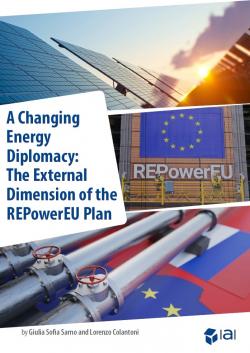A Changing Energy Diplomacy: The External Dimension of the REPowerEU Plan
The global energy market disruption and energy security crisis caused by Russia’s invasion of Ukraine triggered a quick response by the European Commission through the REPowerEU plan launched in May 2022. The plan aims at rapidly reducing the EU’s dependence on Russian energy imports through diversification of suppliers, reduction of energy demand and an acceleration of Europe’s energy transition. The implementation of the plan will redraw the EU external strategy, altering long-lasting energy and political relations and reshaping the global energy market, flows and routes. These new relations present both opportunities and challenges for the EU. While the overall aim of REPowerEU is to strengthen the EU’s energy security and reduce its dependence on a single supplier, both diversification and decarbonisation strategies will often still be associated with the risk of creating strong new dependency patterns with unstable or problematic partners. Therefore, carefully assessing the external implications of the REPowerEU plan is critical to avoid reproducing dynamics similar to those that led to the current energy crisis in the climate neutral future that the EU is striving to achieve.
-
Details
Rome, IAI, March 2023, 44 p. -
ISBN/ISSN/DOI:
978-88-9368-285-5
Introduction
1. Diversification
1.1 Pipeline diversification options and main exporters
1.1.1 South-eastern route
1.1.2 Mediterranean route
1.1.3 Northern route
1.2 LNG diversification options and main exporters
1.2.1 United States
1.2.2 Qatar
1.2.3 Russia
1.2.4 Africa
1.3 Competition and cooperation with other importing countries
2. Decarbonisation
2.1 Hydrogen and decarbonised gases
2.2 Renewables and raw materials
Conclusion
Topic
Tag
Related content
-
Ricerca02/11/2018
IAI-Eni Strategic Partnership
leggi tutto



